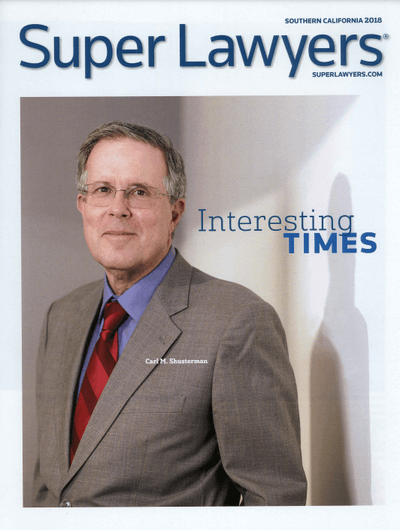
On September 19, 2025, President Trump issued a Proclamation entitled “Restriction on Entry of Certain Nonimmigrant Workers” banning certain persons with H1B visas from entering the United States starting on September 21, 2025 unless their employer’s paid a $100,000 fee for an H1B petition.
On October 20, USCIS updated their H-1B Specialty Occupations page to clarify who is subject to the $100,000 fee, and how and when it must be paid. See below.
The Proclamation also directs the Secretary of Labor to initiate rulemaking to revise the prevailing wage levels for the H-1B program and directs the Secretary of Homeland Security to initiate rulemaking to prioritize high-skilled, high-paid H-1B workers.
However, the Proclamation also provides that the $100,000 “shall not apply to any individual alien, all aliens working for a company, or all aliens working in an industry, if the Secretary of Homeland Security determines, in the Secretary’s discretion, that the hiring of such aliens to be employed as H-1B specialty occupation workers is in the national interest and does not pose a threat to the security or welfare of the United States.”
The Proclamation caused great confusion among both both H1B employer and employees as to who it applied to. Later, the White House clarified that it applied only to new applicants, not to current H1B visa holders or to persons in the United States seeking to extend their H1B status.
White House Press Secretary Karoline Leavitt posted on X on September 20 that the $100,000 fee would apply “only to new visas, not renewals, and not current visa holders.” She further stated that “H1B visa holders can leave and re-enter the country to the same extent as they normally would; whatever ability they have to do that is not impacted by yesterday’s proclamation.”
Client Reviews

Great Work!
“We are very pleased by the services we get from the Law Offices of Carl Shusterman. Our experience in the past year with all our H1B renewals has been amazing, and we’ve obtained great results.”
- KRG Technologies, Valencia, California
Read More Reviews
Zoom Consultations Available!
Sen. Mark Warner (D-Va.) warned that the Proclamation would limit the U.S.’s ability to attract foreign skilled students and workers: “We still need to attract world-class talent in America, and unfortunately, because of the anti-immigrant flavor of a lot of the president’s policies, we are not getting the same caliber of folks coming to our graduate programs, universities, and frankly even in trying to come and work in America,” the senator told Bloomberg on Friday after initial reports of the administration’s move. “And that’s long-term going to hurt our economy.”
DHS is seeking to change the H1B visa lottery system to give an advantage in the selection process to persons receiving the highest wage for their occupation and area of employment corresponding to the Department of Labor’s Occupational Employment and Wage Statistics (OEWS), according to a notice of proposed rulemaking that will be published in the Federal Register on September 24. DHS will accept public feedback on the regulation for 30 days after the proposal is published in the Federal Register.
H1B Visas Ban Q & A
The $100,000 Fee Applies in the Following Situations:
- New H-1B petitions filed on or after September 21, 2025 for foreign nationals who are outside the United States and do not have a valid H-1B visa.
- New H-1B petitions requesting consular notification, port of entry notification, or pre-flight inspection for a foreign national in the U.S.
- If the foreign national is in the U.S. in nonimmigrant status when the H-1B petition is filed, but USCIS denies the request for change of status to H-1B, then the employer must pay the $100,000 fee for the foreign national to apply for an H-1B visa at a U.S. embassy or consulate overseas or to seek admission to the U.S. in H-1B status. Accordingly, requests for change of status should be carefully evaluated for eligibility.
The $100,000 Fee Does Not Apply in the Following Situations:
- Any H-1B petitions filed prior to September 21, 2025
- H-1B petitions filed on or after September 21, 2025 requesting an amendment, change of status, or extension of status for an individual already in the U.S. if the amendment, change, or extension is granted. The USCIS update does not specifically address whether petitions for change of employer (COE) are exempt but given that requests for extension of status are exempted and COE petitions usually also involve requests to extend status, COE petitions should also be exempt.
- Assuming the H-1B petitions are approved under these circumstances, then beneficiaries of these petitions will not be subject to the fee if they later depart the U.S. and apply for an H-1B visa or admission in H-1B status.
The $100,000 fee is a one-time fee for new H1B visas, and must be paid by the employer.
When and how does an employer pay the $100,000 fee?
The fee must be paid before the H-1B petition is filed. It must be paid through the U.S. Department of the Treasury’s pay.gov portal. When the H-1B petition is filed, the employer must submit proof of the fee payment or the approved national interest waiver exception.
Are H-1B Cap-Exempt Employers subject to the $100,000 fee?
Yes
Is it possible to get a National Interest Exemption to the $100,000 fee?
Such an exemption may be granted at the discretion of the Department of Homeland Security only in an “extraordinarily rare circumstance.” The employer must provide evidence that the foreign national’s presence in the U.S. is in the national interest, that there is no U.S. worker available for the job, that the individual is not a threat to the security or welfare of the U.S., and that requiring the employer to make the payment would undermine the interest of the U.S. Requests with supporting evidence must be sent to H1BExceptions@hq.dhs.gov
USCIS’s requirements for a national interest exemption differ than what was initially reflected in the Proclamation, which allows for collective exemptions based by industry or company, and reflects a lower legal threshold for exemptions. The Proclamation states: “(c) The restriction imposed pursuant to subsections (a) and (b) of this section shall not apply to any individual alien, all aliens working for a company, or all aliens work in an industry, if the Secretary of Homeland Security determines, in the Secretary’s discretion, that the hiring of such aliens to be employed as H-1B specialty occupation workers is in the national interest and does not pose a threat to national security or welfare of the United States.”
H1B Visas Ban – Additional Resources
- H-1B FAQ (USCIS)
- Fact Sheet: President Donald J. Trump Suspends the Entry of Certain Alien Nonimmigrant Workers (9-19-25)
- US Dept of Labor Launches PROJECT FIREWALL to Protect America’s Highly Skilled Workforce (9-19-25)
- Proclamation, Restriction on Entry of Certain Nonimmigrant Workers, H-1B – USCIS (9-20-25)
- White House Tries to Tamp Down Corporate Panic for High-Skill Visa Holders After Last-Minute Overhaul (9-20-25)
- H-1B Reform: DHS Proposes Wage-Based Selection Instead of Random Lottery (9-23-25)
- Proposed Rule Rewarding Highest Paid H-1B Workers in Next Years Lottery – DHS (9-24-25)
- Grassley, Durbin Take Aim at Tech, Finance and Retail Sectors for Favoring H1B Visa Holders over American Workers (9-25-25)
- H-1B $100,000 Fee Lawsuit Signals Labor Disruptions Beyond Tech (10-8-25)
- $100,000 H-1B Visa Fees Are a Distraction From Real Reform (10-9-25)
- Chamber of Commerce v. DHS (10-16-25) – 2nd Lawsuit Against H-1B Proclamation
- What You Need to Know about the New H-1B Fee (10-24-25)
- 3rd Lawsuit Against $100,000 H-1B Fee (12-17-25)
- Federal Judge Upholds Legality of $100,000 H-1B Fee (12-23-25)








